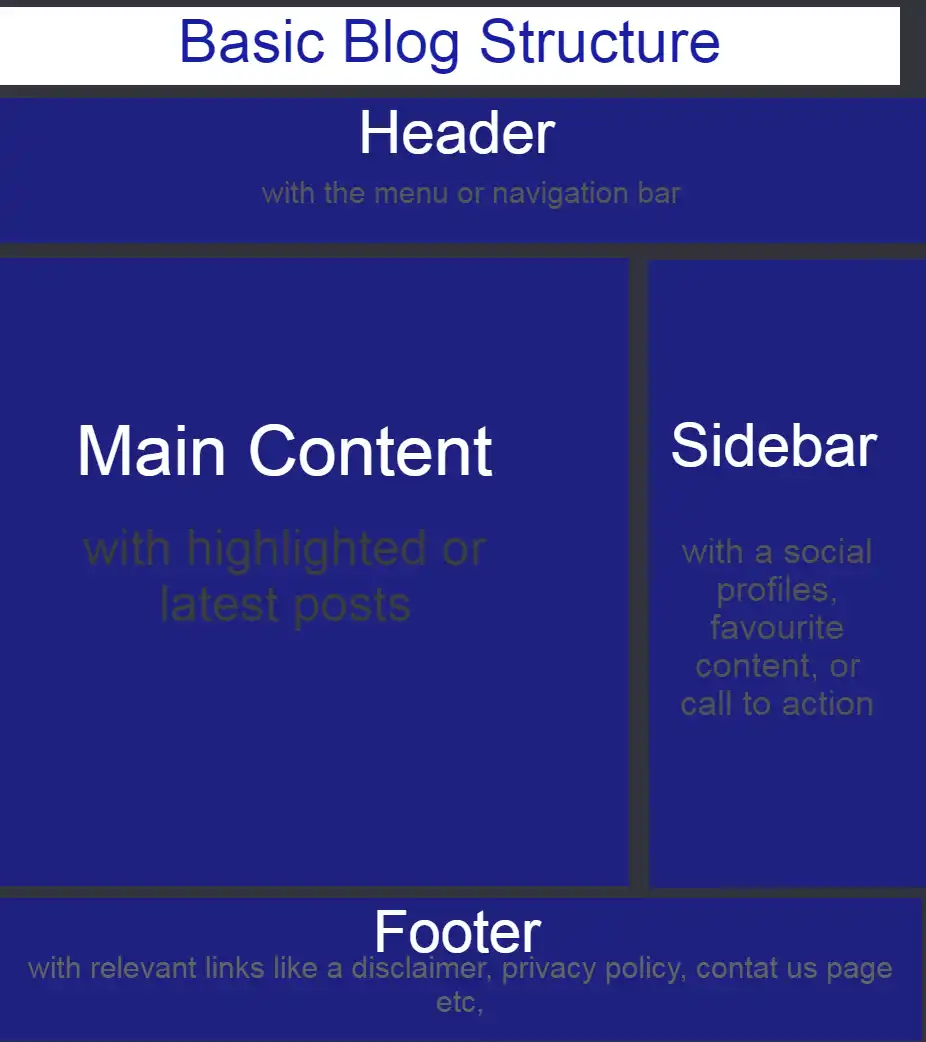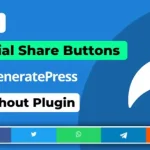What is a Blog: In 1994, when blogs started, a blog was more than a personal diary that people shared online. In this online journal you can talk about your daily life or share about the things you were doing.
What is a Blog?
What's Next
Definition | Meaning of blog
A blog (short for “weblog”) is a type of website that typically contains a series of written or multimedia content, also known as “posts.” Posts are typically displayed in reverse chronological order, with the most recent post appearing first. Blogs often have a specific focus or theme, and the content they publish can range from personal reflections and opinions to news and analysis on a particular subject.
Many bloggers use their blogs as a platform to share their thoughts, experiences, and ideas with a larger audience, and some blogs have a large following and serve as an important source of information and entertainment for readers. Blogs can also be a way for businesses to communicate with their customers and showcase their products or services.
it is safe to say that there are millions of blogs on the web, covering a wide range of topics and serving a variety of purposes. Many people use blogging platforms like WordPress, Blogger, and Tumblr to create and host their own blogs, and there are also many professional blogging websites that publish content from a team of writers.
The sheer number of blogs on the web reflects the popularity of blogging as a way to share information, opinions, and personal experiences with a global audience.

What is the purpose of a blog?
The purpose of a blog can vary depending on the intentions of the person or organization that is creating it. Some common purposes of blogs include:
- Sharing information: Many blogs are created as a way to share information and knowledge on a particular subject or theme. This can include personal experiences, research, news, analysis, and more.
- Providing a platform for self-expression: Blogs can be a way for people to share their thoughts, opinions, and personal experiences with a larger audience.
- Building a community: Blogs can be a way for people with similar interests to connect and engage with one another, forming a community around a particular topic.
- Promoting a business or product: Some blogs are created by businesses as a way to promote their products or services to a wider audience.
- Generating income: Some bloggers monetize their blogs by displaying ads, selling products or services, or through sponsored content.
Overall, the purpose of a blog can be to educate, entertain, or engage with its readers in some way.
What is Blog structure
Over time, the format of the blog kept changing, and now these days different types of features, items and widgets have been included in the blog. However, most blogs still include some standard features and structures.

The structure of a blog typically includes the following elements:
- Home page: This is the main page of the blog, which typically displays a list of the most recent blog posts.
- Blog posts: These are the individual pieces of content that make up the blog. Posts can include text, images, videos, and other media, and are typically displayed in reverse chronological order, with the most recent post appearing first.
- Categories and tags: Many blogs have a system of categories and tags that allow readers to browse and discover content based on specific topics or themes.
- Archives: An archive is a collection of all the posts that have been published on a blog, organized by date or category.
- Sidebar: This is a column that is usually located on the right or left side of the blog, and it can contain various elements such as a search bar, links to popular posts, social media buttons, and more.
- Footer: This is the bottom section of the blog, which can contain additional links, credits, and other information.
Overall, the structure of a blog is designed to make it easy for readers to navigate and discover content, and to provide a platform for the blogger to share their thoughts, experiences, and ideas with their audience.
Blogs and websites
A blog and a website are both types of online platforms that can be used to publish and share information, but they have some key differences.
A blog is typically a type of website that is organized around a series of individual posts, with the most recent post appearing first. Blogs often have a specific focus or theme, and the content they publish can range from personal reflections and opinions to news and analysis on a particular subject. Blogs can be created and managed using blogging platforms like WordPress, Blogger, and Tumblr.
A website, on the other hand, is a collection of web pages that are hosted on a server and accessible via the internet. Websites can serve a variety of purposes, such as providing information about a business or organization, selling products or services, or serving as an online portfolio or resume. Websites can be created using a variety of tools and technologies, including HTML, CSS, and JavaScript.
In summary, a blog is a type of website that is organized around individual posts and often has a specific focus or theme, while a website is a collection of web pages that can serve a variety of purposes.
What differentiates blogs from websites?
There are a few key differences that differentiate blogs from websites:
- Structure: Blogs are typically structured around a series of individual posts, with the most recent post appearing first. Websites, on the other hand, can have a more traditional hierarchy of pages, with a home page serving as the main gateway to the rest of the site.
- Content: Blogs often focus on publishing a steady stream of new content, with posts covering a wide range of topics. Websites can also publish new content, but they may not do so as frequently as blogs.
- Purpose: The purpose of a blog can vary, but it is often to share information, opinions, or personal experiences with a larger audience. The purpose of a website can also vary, but it is often to provide information about a business or organization, sell products or services, or serve as an online portfolio or resume.
- Audience: Blogs can have a broad audience, as they often cover a wide range of topics and serve as a platform for personal expression. Websites, on the other hand, may have a more specific audience, depending on their purpose and the content they publish.
Overall, the main difference between blogs and websites is their structure and purpose, with blogs being focused on publishing a steady stream of new content and websites serving a variety of purposes.
What is blogging?
Blogging is the act of creating and publishing content on a blog, which is a type of website that typically contains a series of written or multimedia posts. Blogs often have a specific focus or theme, and the content they publish can range from personal reflections and opinions to news and analysis on a particular subject.
Many people use blogging as a way to share their thoughts, experiences, and ideas with a larger audience, and some blogs have a large following and serve as an important source of information and entertainment for readers.
Blogging can also be a way for businesses to communicate with their customers and showcase their products or services.
Definition of blogging
Blogging is the act of creating and publishing content on a blog, which is a type of website that typically contains a series of written or multimedia posts. A blog post is a piece of content that is published on a blog and can include text, images, videos, and other media.
Blogging can be a way for individuals to share their thoughts, experiences, and ideas with a larger audience, and it can also be a way for businesses to communicate with their customers and showcase their products or services.
Many people use blogging platforms like WordPress, Blogger, and Tumblr to create and host their own blogs, and there are also many professional blogging websites that publish content from a team of writers.
Overall, blogging is a popular way to share information, opinions, and personal experiences with a global audience.
Why is blogging so popular in the world?
Blogging has become popular for a number of reasons, including:
- Ease of use: Blogging platforms like WordPress, Blogger, and Tumblr make it easy for anyone to create and publish their own blog, regardless of their technical expertise.
- Low cost: Most blogging platforms are free to use, and it is relatively inexpensive to set up a basic blog.
- Wide audience: Blogs can be accessed by anyone with an internet connection, making it easy for bloggers to reach a global audience.
- Personal expression: Blogs can be a way for individuals to share their thoughts, experiences, and ideas with a larger audience, and they can serve as a platform for personal expression.
- Flexibility: Blogs can cover a wide range of topics and styles, and bloggers have the flexibility to publish content as frequently or infrequently as they like.
- Monetization: Some bloggers monetize their blogs by displaying ads, selling products or services, or through sponsored content, which can provide a source of income.
Overall, the combination of ease of use, low cost, and the ability to reach a wide audience has made blogging a popular activity for many people.
Who is a blogger?
A blogger is a person who creates and publishes content on a blog. Bloggers can be individuals or organizations, and they can blog about a wide range of topics, from personal experiences and opinions to news and analysis on a particular subject.
Many bloggers use their blogs as a platform to share their thoughts, experiences, and ideas with a larger audience, and some blogs have a large following and serve as an important source of information and entertainment for readers.
Bloggers can use blogging platforms like WordPress, Blogger, and Tumblr to create and host their own blogs, or they can contribute to professional blogging websites that publish content from a team of writers.
Bloggers can also monetize their blogs by displaying ads, selling products or services, or through sponsored content.
Definition of a blogger.
A blogger is a person who creates and publishes content on a blog. A blog is a type of website that typically contains a series of written or multimedia posts, and it can have a specific focus or theme
Why are so many people blogging today?
Blogging has become a popular activity for many people because it allows them to share their thoughts, ideas, and experiences with a large audience through the internet.
Blogs can be about a wide variety of topics, such as personal experiences, hobbies, politics, or any other subject that the blogger is passionate about.
Blogging is also a way for people to express themselves and connect with others who share similar interests. In addition, many people use their blogs as a platform to build their personal brand or to promote their business or professional interests.
Why is blogging so popular?
There are several reasons why blogging has become so popular:
- It’s easy to start: Setting up and maintaining a blog is relatively easy and can be done by anyone with a computer and an internet connection. There are many blogging platforms, such as WordPress and Blogger, that provide tools and resources to help people create and manage their own blogs.
- It’s a way to share ideas: Blogging allows people to share their thoughts, ideas, and experiences with a large audience. It’s a way for people to express themselves and connect with others who share similar interests.
- It can be a platform for personal branding: Many people use their blogs to build their personal brand or to promote their business or professional interests. Blogging can be a way to showcase your expertise and establish yourself as an authority in your field.
- It can be a source of income: Some people make money from their blogs through advertising, sponsored content, or by selling products or services.
- It’s a form of self-publishing: Blogging allows people to publish their own content and reach a large audience without the need for traditional publishing channels. This can be especially appealing to those who may have difficulty getting their work published through traditional channels.
Are bloggers getting paid?
Some bloggers do make money from their blogs, either through advertising, sponsored content, or by selling products or services. However, it’s important to note that making money from a blog is not easy and requires a significant amount of time, effort, and dedication.
Many bloggers do not make any money from their blogs, and some even lose money due to the costs of maintaining a blog (such as hosting fees, domain registration fees, etc.).
There are several ways that bloggers can make money from their blogs:
- Advertising: Many bloggers make money by displaying ads on their blog. There are several companies that offer advertising services for bloggers, such as Google AdSense. Bloggers earn money when someone clicks on an ad on their blog.
- Sponsored content: Bloggers can also make money by writing sponsored content for companies or individuals. This can involve writing reviews of products or services, or creating content that promotes a company or product.
- Selling products or services: Some bloggers sell their own products or services through their blog. This can include physical products, digital products (such as ebooks or courses), or services (such as consulting or coaching).
- Affiliate marketing: Bloggers can also make money by promoting other people’s products or services and earning a commission when someone makes a purchase through their referral.
It’s worth noting that making money from a blog requires a lot of hard work and dedication. Many bloggers spend hours each week creating content, promoting their blog, and engaging with their audience. It can also take a long time to build a large enough audience to generate significant income from a blog.
Want to start a blog on your own?
If you want Starting a blog can be a rewarding and fulfilling experience, as it allows you to share your thoughts, ideas, and experiences with a large audience and connect with others who share similar interests. If you’re interested in starting a blog, here are some steps you can follow:
- Choose a blogging platform: There are many different blogging platforms available, such as WordPress, Blogger, and Squarespace. Each platform has its own features and tools, so it’s important to choose one that meets your needs and is easy for you to use.
- Choose a topic: Decide what you want to write about on your blog. It could be a personal hobby, a particular area of expertise, or any other topic that you are passionate about.
- Choose a domain name: A domain name is the web address that people will use to access your blog. It’s important to choose a domain name that is catchy and easy to remember. You can purchase a domain name through a domain registrar, such as GoDaddy or Namecheap.
- Set up your blog: Once you’ve chosen a blogging platform and a domain name, you can set up your blog by following the platform’s instructions. This usually involves choosing a design template and customizing it to suit your needs.
- Start writing: Now that your blog is set up, you can start writing and publishing posts. It’s a good idea to create a content calendar to help you plan and organize your posts.
- Promote your blog: Once you start publishing posts, you’ll want to promote your blog to attract readers. You can do this by sharing your posts on social media, participating in relevant online communities, and engaging with your audience through comments and email.
Starting a blog takes time and effort, but it can be a rewarding and fulfilling experience. It’s a good idea to be consistent and persistent in your efforts, and to always be open to learning and improving.
Blog, blogging and blogger
Here is a summary of the key points about blogging, bloggers, and blogs:
| Term | Definition |
|---|---|
| Blog | A blog is a website or section of a website that contains a collection of posts, usually displayed in reverse chronological order (with the most recent posts appearing first). Blogs can be about a wide variety of topics. |
| Blogging | Blogging is the act of creating and publishing content on a blog. Blogging can be a hobby or a way to share thoughts, ideas, and experiences with a large audience. It can also be a platform for personal branding or a source of income. |
| Blogger | A blogger is a person who creates and publishes content on a blog. A blogger is often the owner or author of a blog, and may write about a wide variety of topics that they are interested in or knowledgeable about. |
Conclusion:-
We hope that you’ve learned some helpful information about the world of blogging. To be successful at blogging, it’s important to choose a topic that you are passionate about and to create and publish high-quality content on a regular basis. It’s also important to engage with your audience and promote your blog through social media and other channels. While starting and maintaining a blog requires time and effort, it can be a rewarding experience for those who are dedicated and persistent in their efforts.










Greetings! Very useful advice within this article! It is the little changes that produce the most important changes. Thanks for sharing!